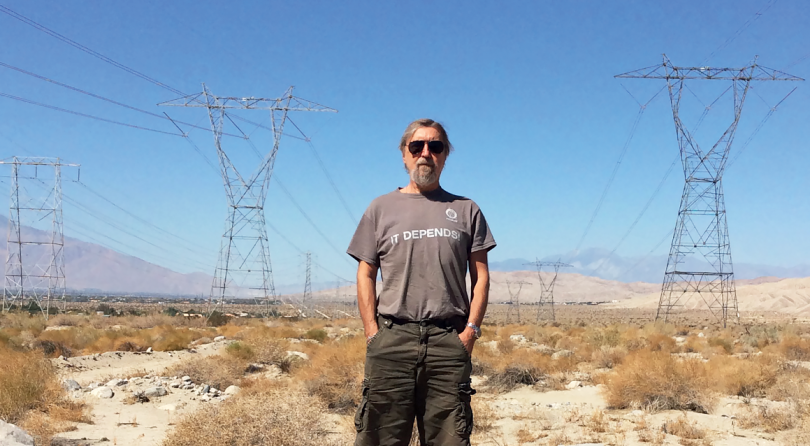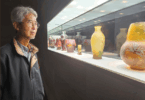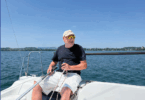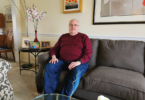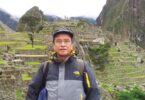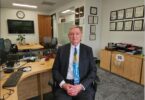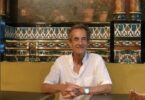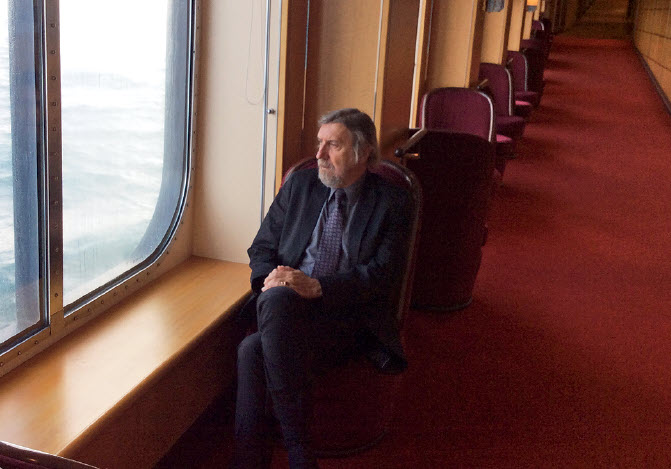
PAC World: When and where were you born?
A.A.: I was born on 18 July 1949 in Sofia, the capital of Bulgaria.
PAC World: Where did you go to school?
A.A.: I went to junior and middle school in my neighborhood school which was in the same block where I lived. Then I went to high school No 21 and I was in a more specialized class with focus on advanced math.
PAC World: Do you remember anything from your childhood that you think contributed to you becoming an engineer?
A.A: Not really. I knew that my grandfather has been an aircraft engineer, but I never met him, because he was killed in 1944 after the Soviet army entered Bulgaria.
PAC World: Who do you think is the person that had the most influence on you when you were growing up?
A.A.: My mother. She was an amazing human being and she gave me some guiding principles that I still follow today.
PAC World: Did you have any specific interests while you were in school?
A.A.: Many. I had interests in art, I loved to read about history and science, as well as criminal and science fiction novels. I also played tennis, basketball and football (soccer).
PAC World: Why did you decide to continue your education?
A.A.: Everybody in my family has gone to university, starting with my great-grand fathers, one of which was the first Rector of the first university in Sofia and another who was an ambassador in London. So, going to university was the natural thing to do.
PAC World: You have almost 45 years’ experience in Power System Protection and Control. As an electrical engineer, you would have many other options – why did you choose to work in the electrical power domain?
A.A.: Since Bulgaria at the time was a communist country, my parents explained to me that all the humanitarian fields that I was interested in were not recommended due to the propaganda machine they served, thus I had to choose a technical field. I was good in math and physics and the Technical University in Sofia was the top one in the country.
PAC World: Did you ever regret that decision?
A.A.: Not really. It has always been interesting, and I could always find a way to make it more exciting.
PAC World: Did you study electric power systems or protection while in college?
A.A.: Yes, after two years of general engineering courses, the third year I studied electric power system topics. Then in the fourth year and first half of the fifth year I studied protection and control related subjects. The second half of my last year was work on my thesis on “Short term load forecasting.”
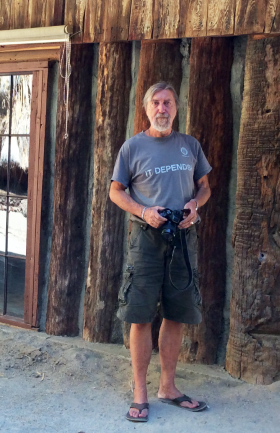
PAC World: Did you have any other interests while in university?
A.A.: I continued my interests in art, but they expanded to photography and films. In the summer I was going as a photographer on expeditions with a student club dedicated to capturing the historical and architectural monuments around the country.
At the same time, I became interested also in Eastern philosophies – Zen and Tao, that had an impact on my development as a person.
PAC World: What was your first job?
A.A.: After 18 months in the army (which was mandatory) I started as a protection engineer in Energoproject in Sofia – a research and design institute supporting the Bulgarian power grid with around 2,000 employees.
PAC World: What was the most challenging task at the beginning?
A.A.: Well, that was in 1975 and we had a mainframe computer only for short circuit studies and the data for the system model was on punched cards without print – imagine what it took to verify the data. I also had to come up with a way to calculate the mutual coupling on a double circuit line operating on different voltages, manually calculating the power swing trajectory for a BBC relay, etc.
PAC World: What has been the most challenging project that you have worked on?
A.A.: In Bulgaria it was the design of a System Integrity Protection Scheme related to the extension of a nuclear power station with a 1,000 MW generator. In the US it started with NYSEG’s six-phase line protection and later UCA2/IEC 61850 – a whole new world.
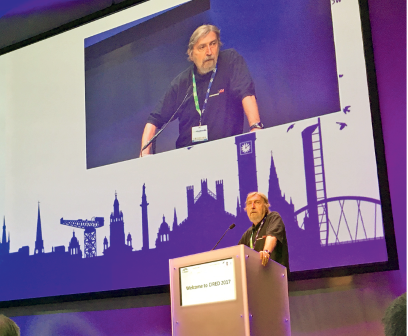
PAC World: What is the most satisfying one?
A.A: All of them and many others. Every time when you do something that has never been done before and you make it work – it’s an amazing feeling.
PAC World: Today we are part of the transition from hard wired protection and control systems to IEC 61850 communications based fully digital substations. What is your opinion about it, the benefits and challenges?
A.A.: The benefits are tremendous – we can summarize it as improved reliability, security and efficiency of the electric power grid. The challenges are related to the fact that this is something new and different and many people don’t like changes.
PAC World: As a protection engineer – how did you learn those new more IT focused technologies that IEC 61850 brings in? What would you recommend to other protection engineers on how to deal with new technologies?
A.A.: I think that it is a matter of attitude. I never run away from a challenge. I believe that the only thing that can stop us is ourselves. So, when someone gives me a new task, I don’t say “I don’t know this,” I start digging and learning, and then pushing it beyond what is already there.
PAC World: You are a Doctor of Philosophy – technical sciences – Can you explain? What was your thesis?
A.A.: In different countries there are various levels of higher education. When I was initially at the university it was a five years program and you graduate with an equivalent of a master’s degree, in my case in Electrical Engineering. The next level was a Ph. D. and in my case the topic was “Optimal load-shedding for System Integrity Protection Schemes.”
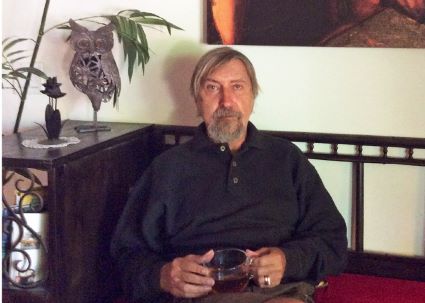
PAC World: In 1990 you moved from a communist country to a western country. What were your positive experiences with that? What were the negative experiences?
A.A.: I wouldn’t say I had negative experience, but challenges. When you start at the age of 40 from zero in a place where nobody knows who you are, and you have to deal with the bureaucracy to get a Green card and citizenship – this is not fun. But on the other hand, this gave me the opportunity to do amazing things and see the world. And the best part was that it didn’t matter that I came from a small country that many people didn’t know about.
PAC World: As a protection engineer you have worked both on the manufacturer side as well as on the customer (utility) side. Which was more fun?
A.A.: To me it doesn’t matter. It is always fun, because at the end of the day you have to solve some problem wherever you are. And you can always look for an innovative way of doing it – which makes it fun. It can be frustrating when things don’t move as fast as I would like, or they can’t be done for some reason, but this happens both at utilities or manufacturers.
PAC World: We know you like technology and are open for new ideas. What was for you the most exciting new development related to power system protection and control? (don’t say IEC 61850 – we want to have it more narrowed down)?
A.A.: There are many things. When I was still in university I read a paper by George Rockefeller “Fault Protection with a Digital Computer“ published in 1969 in the Transactions of the IEEE. This started my thinking of digital protection and some of my early papers in the 1980s. At the same time, I was interested in pattern recognition, which today is considered artificial intelligence – this is 50 years ago. The introduction of user programmable protection IEDs was the next big change. Now we have digital substations and I have been thinking for some time about centralized protection and lately “Protection as a Service” in the cloud.
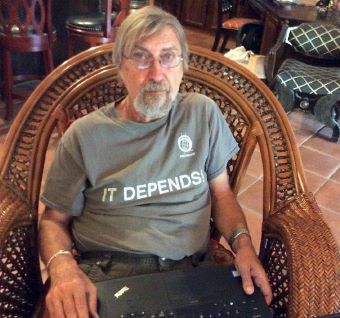
PAC World: The electric power grid today is very different from the power grid of the twentieth century. What do you think about the impact of inverter based distributed energy resources on protection and control systems?
A.A.: The impact is very significant – now we have electric power sources everywhere, but at the same time they do not produce fault current as the synchronous generators do and the dynamic behavior of the system changes as well. So, we now have to look for a different approach to protect the system under abnormal conditions.
PAC World: What do you think is the future of our industry?
A.A.: The future is very exciting due to the development of communications, computer technology, artificial intelligence and IEC 61850. There are so many things that we can do much better using these advanced technologies if we open our minds. Some are happening today – digital substations, centralized protection. And I believe that the day of PaaS (Protection as a Service) in the cloud is coming too.
PAC World: What do you believe is the best way to share your knowledge and experience with the new generation of protection engineers?
A.A.: There are many different ways – writing papers, presenting at seminars and workshops, teaching and guiding them in their research, being involved with them in working groups in IEEE and CIGRE.
PAC World: What do you think is most important for a protection engineer’s development today?
A.A.: First – to understand the electric power system and its components. Then – learn about protection principles and their applications, and finally know IEC 61850, as well as the state-of-the-art communications and computer technology.
PAC World: What do you consider the biggest challenge in your professional career?
A.A.: Dealing with people that do things as they always did, being afraid of making an effort to learn and try something new.
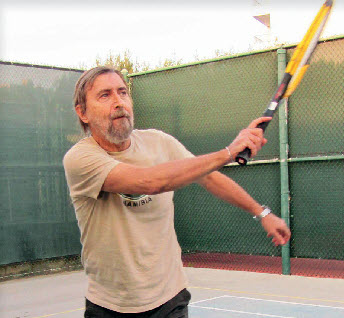
PAC World: What do you consider your biggest professional accomplishment?
A.A.: Always trying to learn something new and apply it to solve some existing problem in a better way.
PAC World: You have received many awards throughout your career. Is there a specific one which is the most important to you?
A.A.: I never do something thinking about receiving an award. That is why when I receive any award I appreciate it, because someone decided to nominate me, and other people decided to support me, just because they believe that I deserve it. That is why each one is special to me.
PAC World: What do you think is your most important personal achievement?
A.A.: Being who I am inside, regardless of the world around me. Doing what I believe is right, without expecting anything in return. And maybe the fact that when I get up in the morning I am looking forward to a day that will bring something new.
PAC World: What do you think we need to do to attract more young people to our industry?
A.A.: We need to find the young people that have an internal drive to learn, to change the world. Once we find them, we need to teach them everything we know and show them how challenging and exciting our industry is.
PAC World: What is the advice that you would give to an audience of young people?
A.A.: I give this advice in front of any audience, but it can help young people a lot. So, the advice is as follows: Whatever you do in your private or professional life always first ask these three questions in this order:
- What am I doing?
- Why am I doing it?
- How am I doing it?
This will help in doing things right
PAC World: You inspire the world community with your international work, how do you manage to deliver so many papers, and presentations that are always with a new focus?
A.A.: We live in a constantly changing world – the changes in the electric power grid, communications and computer technology, non-conventional sensors and IEC 61850 constantly change the focus.
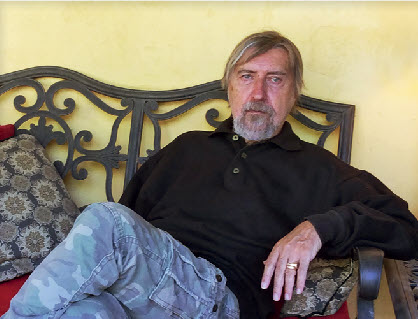
PAC World: How do you manage to keep up with all the work related to PAC World, CIGRE, IEC, IEEE and the rest?
A.A.: The goal of PAC World is to be a forum for our industry. What is happening in CIGRE, IEC and IEEE is all part of the PAC world and all activities address different aspects of similar or identical issues. And all of this needs to be covered in the magazine.
PAC World: Why did you start the PAC World Magazine and the PAC World Conference?
A.A.: That was actually the idea of Rainer Aberer, the founder of OMICRON electronics. We have talked with him that our industry doesn’t have a magazine and he decided to do it as a service to the community. So, he asked me in the beginning of 2006 to be the Editor-in-Chief. I agreed, because this was an opportunity to mix my technical and artistic sides. Not many people believed that we could do it, but here we are 13 years later with issue number 50.
The conferences’ idea came later as a way to bring us together to discuss face-to-face the challenges and the solutions for our industry.
PAC World: One of your famous terms is “It Depends,” how did you come up with this important statement?
A.A.: Some years ago, I noticed that pretty much every time when someone asked me a question I started my answer with “It depends.” I started paying attention to this fact after some discussion with my daughter who was at Law school at the time. And if you think about it, everything depends on many different related factors. That is why I decided to put it on a T-shirt, so people should think about it.
The future of our industry is very exciting due to the development of communications, computer technology, artificial intelligence and IEC 61850.
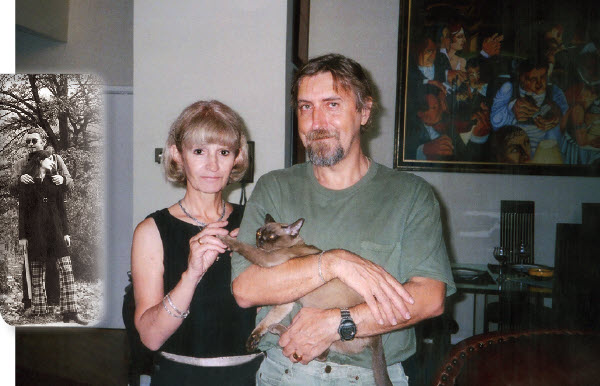
PAC World: You have traveled to many countries. Do you have a favorite place to visit?
A.A.: It depends! In principle I try to avoid comparing things, but wherever you go, there may be something special to look for – in some places it is nature, in others – art, history, architecture, food. So far, my travel is mostly related to where the meetings and events are.
PAC World: What do you like best related to your many trips?
A.A.: I don’t like the flights and the airports. I like when I get there. Being in a different environment, but mostly spending time with my friends – the great people from our industry.
PAC World: With all your travels – do you have the chance to see more than the airport and the hotel or do you not care?
A.A.: I would love to see the cities and the nature, to get my camera and walk around taking pictures. But unfortunately, most of the time it is airport – hotel – meeting room – hotel – airport.
PAC World: With your loaded travel schedule – do you have time for any hobbies, and if yes – what are those?
A.A.: Many things – I like to be out in nature or walk around a city with my camera looking for something unique and beautiful. I do yoga, play bridge and spend time reading about science, technology and zillions of other things.
PAC World: How do you mix your professional and your personal life?
A.A.: It depends on the definition. To me they are both an integral part of my life. Normally people go to work, and this is their professional life. Then they go home, and this is their personal life. I don’t think this way.
PAC World: You are still working in different roles. Do you ever consider retiring?
A.A.: No! I love what I do and if I can contribute, if I can push the world forward, I am happy to do it.
PAC World: You have been married for 45 years. What is the secret?
A.A.: It is a lifetime teamwork. Having common goals and growing up together, supporting each other in solving the challenges in front of us.
PAC World: What is your favorite music?
A.A.: Good music. But most of the time I listen to classical music – Mozart, Beethoven, Chopin and many others. But I also like classic rock. I love the Beatles, Pink Floyd, Jimmy Hendrix – you get the idea.
PAC World: What is your favorite form of entertainment?
A.A.: IEC 61850 working group meetings 🙂 Well, just kidding. I like many things, depending on my mood. I can watch a good movie, a rock concert, a ballet performance or a classical music performance.
PAC World: Do you have any favorite food?
A.A.: I like many different kinds of food, but when I eat meat (not very often) I prefer lamb or game. I also eat a lot of fish, salads and nuts.
PAC World: Do you have a motto?
A.A.: Make the world a little better. Do the best you can under the circumstances and don’t expect anything in return.
You can watch a detailed interview with Alex here.



